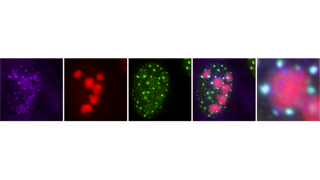Peer support in breast cancer care requires flexibility – patients’ needs vary along the care pathway

Interaction is Framed by Hesitation, Unconditionality, and Connection
In group interviews, breast cancer patients described peer support interaction through three distinct frames: hesitation, unconditionality, and connection.
In the hesitation frame, the patient questions whether she needs peer support and feels uncertain about its usefulness for herself. The action of the peer supporter may either alleviate or reinforce this hesitation.
In the unconditionality frame, the patient values being at the center of the interaction while sharing her cancer story. She expects the peer supporter to be fully present, trustworthy, and able to adapt to her needs.
In the connection frame, the patient positions herself as someone in need of help. Interaction here is reciprocal and compassionate.
Identities Reflect the Roles of Patients and Peer Supporters
The study does not view peer support as a static phenomenon but as an interactive process where meanings and roles are constructed through patients’ narratives. It also reveals how patients and peer supporters perceive themselves in interaction.
Doctoral researcher Anu Toija from the Faculty of Sport and Health Sciences at the University of Jyväskylä explains that in a peer support relationship, patients described themselves in various ways - for example as “independent investigators”, “narrators of one’s own story”, and “acceptors”, while peer supporters were seen as “reliable supporters”, “compassionate communicators”, and emotional “lock openers”.
Frames are Tools for Practical Development
Peer support can complement the social life of a patient, and support identity building during cancer. The study helps to understand that peer support is not the same for everyone. When offering peer support, the wishes and needs of a patient should be considered. Peer support should be offered flexibly at different locations and times along the breast cancer care pathway. Training and support for peer supporters are also essential to ensure genuinely beneficial interaction.
“Supporting patient autonomy is crucial in peer support interaction,” says Anu Toija.
The study offers valuable insight on how peer support can be integrated into breast cancer care and the training of the peer supporters. It helps to clarify the expectations and needs that patients have for peer support at different stages of their disease. The findings can be used in hospitals and patient organizations to develop peer support activities. The study offers tools for training peer supporters and for encountering patients.
Anu Toija works at HUS in Nursing Management, with responsibility for patient involvement. She holds a master’s degree in health sciences and is a trained midwife. Anu is conducting her doctoral research on the meaning of peer support for breast cancer patients at the University of Jyväskylä’s Faculty of Sport and Health Sciences.
Further information and a link to the research article:
Anu Toija M.H.Sc
Faculty of Sport and Health Sciences, University of Jyväskylä
HUS Helsinki University Hospital
anu.toija@hus.fi +358504665152
Multidimensional peer support in health care: Breast cancer patients’ perspectives on interaction with peer supporters
Toija Anu, Kettunen Tarja, Kasila Kirsti.
European Journal of Oncology Nursing,
Published online August 27, 2025
DOI: 10.1016/j.ejon.2025.102971
https://www.ejoncologynursing.com/article/S1462-3889(25)00195-4/fulltext






